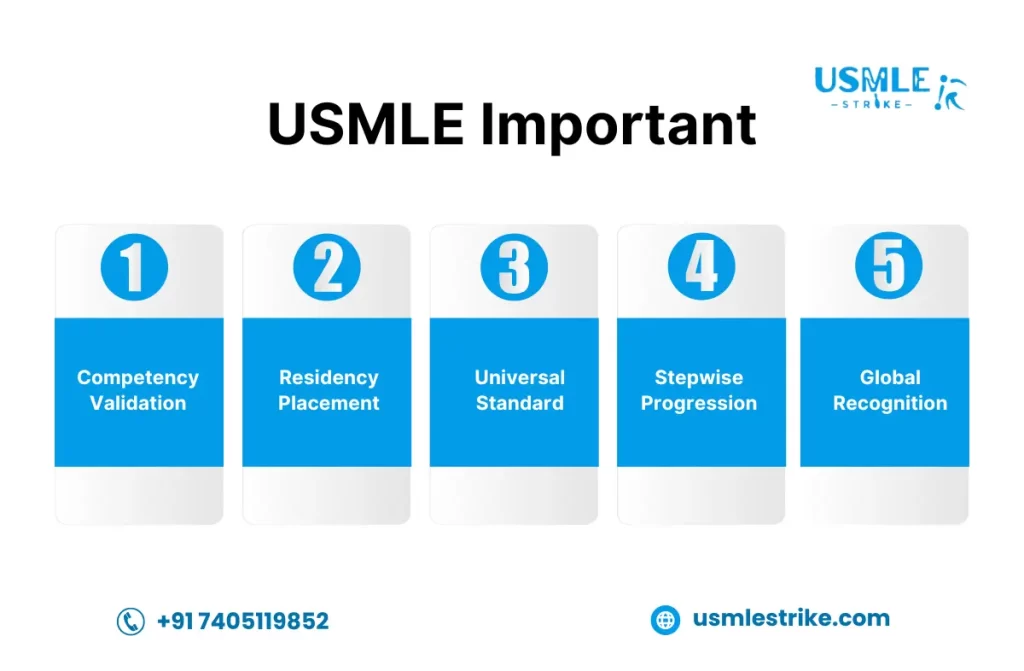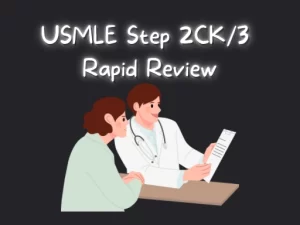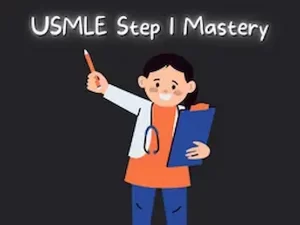The USMLE exam myths often create unnecessary panic among medical students preparing for the United States Medical Licensing Examination. These myths, while persistent, are not based on facts and can lead to poor preparation strategies. At USMLE Strike, our mission is to help you separate fact from fiction and approach your USMLE preparation with clarity and confidence.
In this blog, we’ll explore the most common USMLE exam myths, provide insights into the truth behind them, and guide you on how to prepare effectively. Let’s get started!
Purpose and Mission of the USMLE
The USMLE isn’t just another exam; it plays a pivotal role in ensuring the quality and competence of medical professionals entering the U.S. healthcare system.
- Purpose: The USMLE evaluates whether a medical graduate possesses the necessary knowledge, skills, and abilities to provide safe and effective care.
- Mission: It standardizes medical licensure requirements across the U.S., ensuring that physicians meet a high level of competence regardless of their training background.
Misunderstanding this purpose has led to the creation of several USMLE exam misconceptions that students encounter.
What Is the USMLE?
Let’s get the USMLE exams explained for clarity:
- Step 1: This step assesses your understanding of foundational sciences like anatomy, pathology, and pharmacology.
- Step 2: Split into Clinical Knowledge (CK) and Clinical Skills (CS), Step 2 tests your ability to diagnose and manage clinical cases.
- Step 3: The final step evaluates your readiness to practice independently as a physician.
Each step is carefully designed to ensure you’re not just memorizing facts but applying medical knowledge effectively in real-world scenarios.
Why Is the USMLE Important?
The USMLE holds immense importance for medical graduates:
- Competency Validation: It ensures that physicians have a baseline of knowledge and skills required for safe practice.
- Residency Placement: Many residency programs consider USMLE scores as part of their selection criteria.
- Universal Standard: For international medical graduates (IMGs), passing the USMLE proves their ability to meet U.S. standards.
While critical, it’s essential to dispel USMLE exam myths that exaggerate the exam’s impact on your medical career.
Debunking 5 Common Myths About the USMLE
Here are some of the most common USMLE exam myths, debunked to help you prepare smarter.
Myth 1: More Study Time Equals Higher Scores
- Reality: It’s not about the hours you spend but how effectively you study.
- Active recall, spaced repetition, and focusing on high-yield topics yield better results than long, unstructured study sessions.
- Overloading yourself often leads to burnout, which hinders your progress.
Myth 2: High Scores Guarantee Residency Placement
- Reality: While scores are important, residency programs consider a holistic view of applicants.
- Factors like clinical performance, research experience, and interviews weigh heavily in your application.
- Falling into this USMLE exam misconception can divert your focus from other critical areas.
Myth 3: You Must Memorize Everything
- Reality: The USMLE tests your ability to apply knowledge, not just recall it.
- Building a strong conceptual foundation in high-yield subjects is far more effective than rote memorization.
- Questions often require reasoning and critical thinking.
Myth 4: Practice Exams Don’t Help Much
- Reality: Practice exams are a cornerstone of effective USMLE preparation.
- They familiarize you with the format, improve time management, and help identify weak areas.
- Ignoring practice exams is a mistake often rooted in USMLE exam misconceptions.
Myth 5: USMLE Scores Define Clinical Competence
- Reality: Scores are one part of your journey, but they don’t define your abilities as a physician.
- Clinical skills, patient interaction, and teamwork are equally important.
- This myth often misleads students into over-focusing on scores at the expense of practical skills.

Myth vs. Truth: Residencies and the USMLE
Residency programs often emphasize USMLE scores, which fuels many USMLE exam myths. Here’s a breakdown of what’s myth and what’s true:
- Myth: Residency programs rank candidates solely based on USMLE scores.
- Truth: Programs also assess personal statements, letters of recommendation, and clinical experience.
- Myth: A low score eliminates your chances of matching.
- Truth: Many students with average scores have matched into excellent programs by excelling in other areas.
This breakdown, along with the USMLE exams explained, highlights the importance of a balanced approach to your application.
What Experts Are Saying About the USMLE
Experts and mentors often stress the importance of focusing on preparation rather than succumbing to USMLE exam misconceptions:
- “Success isn’t about perfection; it’s about persistence.” — Dr. Maya Singh, Residency Program Director.
- “The USMLE is challenging, but it’s also an opportunity to refine your skills.” — Dr. Alex Carter, Medical Educator.
- “Don’t let myths define your preparation. Focus on facts and strategies that work.” — Dr. Priya Sharma, USMLE Mentor.
These insights align with the mission of USMLE Strike, which is to guide students toward success by debunking myths and empowering them with accurate information.
Key Takeaways
Here are some actionable points to help you navigate the USMLE journey effectively:
- Ignore the Myths: Most USMLE exam myths are exaggerated or outright false.
- Focus on High-Yield Content: Prioritize topics that are frequently tested.
- Practice Consistently: Use practice exams and active recall techniques to reinforce learning.
- Think Beyond Scores: Build a well-rounded application by excelling in clinical rotations and networking.
Conclusion
The USMLE exam myths can be intimidating, but they don’t have to hold you back. With the right mindset and preparation strategies, you can overcome these misconceptions and achieve success. Remember, the USMLE is a stepping stone, not an insurmountable barrier. At USMLE Strike, we’re here to guide you every step of the way. Whether you need help with study strategies, myth-busting, or simply staying motivated, we’ve got your back. Contact us today, and let’s work together to make your USMLE journey a successful one!
Check out Our YouTube channel for more interesting information.





